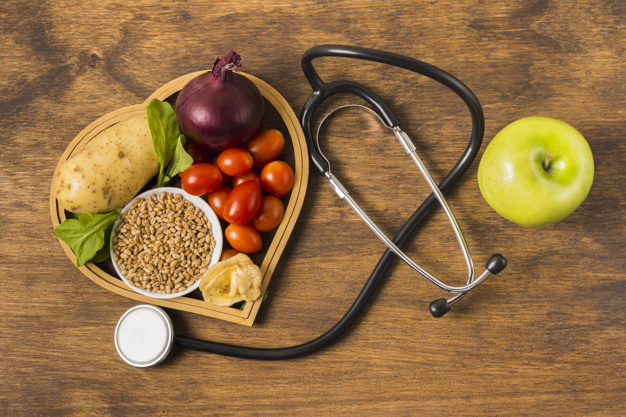Preoperative condition is generally referred as the time phase before the beginning of any surgical procedures and the cares, which have provided to the patients during this phase, are termed as pre-operative cares. Proper nutritional support is one of the most important features of pre-operative condition as it helps to make the surgical therapy effective. It mainly helps to prevent malnutrition and also helps to increase nutrient reserves within body.
Why nutritional support is needed during pre-operative condition?
- It has seen that patient, who is undergoing surgical procedure faces tremendous physical as well as psychological stress, which ultimately increases nutritional demand and this increased demand should be met by providing proper nutritional support to prevent the risk of developing post operative health hazards
- Malnutrition and micronutrient deficiencies are the common problems that cause extra burden to hospitalized patients and if these are not corrected properly then will develop several clinical complications. Nutrition plays vital role in preventing these deficiency disorders and thus helps to reduce the prevalence of complications
- It is associated with formulating diet as per the nutritional need of the patient hence helps to improve the nutritional status of the body
- Proper nutritional support is also very effective for rapid wound healing and also helps in early recovery
- It helps to decrease the risk of developing post operative infections
- Pre-operative nutritional care helps to promote the functionality of cardiovascular system, gastrointestinal tract, respiratory system and immune system thus decreases post operative mortality rate


Pre-operative Nutritional management
Energy
- Adequate energy should be provided to patient during pre-operative condition as it helps to support the increased catabolic rate of the body
- It is better to utilize carbohydrates (mainly) for energy purposes, which finally helps to spare the proteins for its tissue building activities
- If a patient is underweight then it is better to provide more energy to him or her for increasing body weight to an ideal level before surgery
- Whereas, if a patient is overweight then it is better to decrease calorie intake for facilitating weight reduction before surgery
Proteins
- The diet of a pre-operative patient should be enriched with protein especially in essential amino acids
- It is better to provide 1.2g of protein per kg of ideal body weight
- It helps to prevent malnutrition and also improves protein reserve within body that ultimately reduces post operative losses and damages
- It mainly helps to counteract the blood loss (as globin protein helps in the synthesis of hemopglobin), which will occur during surgery thus reduces the prevalence of anemia
- It is associated with preventing tissue catabolism as well
- It helps to maintain the growth and functionality of lean tissues
- Proper protein consumption is related with promoting the synthesis of immunoglobulins that help to improve the overall immunity, which helps to increase the body’s resistant power thus promotes recovery
- It helps to repair tissue damages
- It also promotes wound healing
- It is associated with improving bone mineral density thus pre-operative protein consumption is very beneficial for orthopedic surgery as well

Carbohydrates
- 60 to 65% of total calorie intake should come from carbohydrate
- It helps to provide energy
- It is also associated with improving glycogen stores in liver that in future helps to fulfill the need of calories in body (as food ingestion may be limited during post operative condition). Body will utilize stored glycogen for energy purpose. It has seen that glycogen is broken down to generate glucose which further utilizes by the body for ATP production
- It is better to avoid high fibre foods or complex carbohydrate at least 24 hours before surgery as fibre takes long time to digest
- Carbohydrate loading is also associated with reducing surgical stress on patients thus decreases the prevalence of post operative complications
Fats
- Diet should be free from excessive fat
- Excessive fried and spicy food should be avoided during this phase
- Moderate amount of fat should be provided for energy purpose and for supporting the functioning of fat soluble vitamins in body


Vitamins and Minerals
- As the need of protein and energy is increased during pre-operative condition thus proper amount of B vitamins (especially B1, B2, B3 and B6) should be supplied for facilitating metabolism
- Vitamin C should be provided for promoting the synthesis of connective tissue and it also promotes wound healing
- Diet should be rich in Vitamin A and Vitamin E as they act as antioxidant thus help to decrease oxidative stress
- Vitamin K must be provided as it helps to promote blood coagulation thus decreases the prevalence of excessive bleeding during and after surgery
- Preoperative diet should also contains all minerals as per recommendation and special consideration should be given on iron, potassium, calcium and phosphorus
- Iron helps to promote the synthesis of hemoglobin and preoperative consumption of iron rich diet is associated with increasing the blood volume as well as helps in iron storage, which ultimately help to prevent the consequences of post operative blood loss
- Potassium is responsible for promoting the synthesis of new cells and tissues thus plays imperative role in repairing tissue damages
- Calcium and phosphorus should also incorporated in diet as they help to promote the growth of skeletal system

Water and electrolytes
- It is better to provide proper water as well as electrolytes to the patient for maintaining proper water and electrolyte balance
- It also helps to prevent dehydration
Diet of immediate pre-operative period
- It is better not to consume any foods before 8 hours of surgery as it helps to ensure that the stomach does not contain any food particles. It has seen that presence of food in stomach immediately before surgery is responsible for developing various health complications like aspiration of food molecules during anesthesia
- On the other hand presence of food in stomach is also associated with increasing the risk of postoperative gastric expansion as well as gastric retention
- It is thus better to provide non-residual diet (diet that does not contain any fibre rich food) to the patient during immediate pre-operative condition
- Low residual elemental formulas (in liquid form) can also be provided to the patient during this phase
Emergency surgery
- It is a condition when surgery is urgent that means no time is available for pre-operative cares or for building up nutrient stores in body. In this condition the nutritional status of the patient is considered as the ultimate feature
- Poor nutritional status is responsible for increasing the risk of postoperative complications as it develops several deficiency disorders that hinder the recovery processes and also increases post operative morbidity and mortality rates
- On a contrary good nutritional status is associated with maintaining good nutrient reserve, which helps to fulfill the need of the body when necessary
- Thus it is always better to consume a healthy diet for obtaining a good nutritional status, which is accountable for improving nutrient storage in body that helps to make the reserves available to supply nutrient for fulfilling the need of body during emergency

Dietary guidelines
- Proper attention should be given to pre-operative patients for ensuring the improvement in their nutritional status
- Pre-operative diet should be rich in protein and energy and should be easily digestible
- It is better to avoid the consumption of whole grain cereal products, fried egg, red meat and pastries during this condition

Source:
Antoniou, S.A., Anastasiadou, A., Antoniou, G.A., Granderath, F.A. and Kafatos, A., 2017. Preoperative nutritional counseling versus standard care prior to bariatric surgery. European Surgery, 49(3), pp.113-117.
Ehresman, J., Ahmed, A.K., Schilling, A., Pennington, Z., Lubelski, D., Cottrill, E., Goodwin, M.L., Liddy, A., Abu-Bonsrah, N., Goodwin, C.R. and Sciubba, D.M., 2020. Preoperative nutrition consults associated with decreased postoperative complication rate and decreased length of hospital stay after spine metastasis surgery. World neurosurgery, 133, pp.e173-e179.
Ekici, U. and Ferhatoglu, M.F., 2020. Perioperative and postoperative effects of preoperative low-calorie restrictive diets on patients undergoing laparoscopic sleeve Gastrectomy. Journal of Gastrointestinal Surgery, 24(2), pp.313-319.
Grass, F., Benoit, M., Bertrand, P.C., Sola, J., Schäfer, M., Demartines, N. and Hübner, M., 2016. Nutritional status deteriorates postoperatively despite preoperative nutritional support. Annals of Nutrition and Metabolism, 68(4), pp.291-297.
Holderbaum, M.S. and Buss, C., 2018. Dietary Management in the Immediate Preoperative Period of Bariatric Surgery: a National Overview. Obesity surgery, 28(6), pp.1688-1696.
Kim, E., Kang, J.S., Han, Y., Kim, H., Kwon, W., Kim, J.R., Kim, S.W. and Jang, J.Y., 2018. Influence of preoperative nutritional status on clinical outcomes after pancreatoduodenectomy. HPB, 20(11), pp.1051-1061.
Stoner, P.L., Kamel, A., Ayoub, F., Tan, S., Iqbal, A., Glover, S.C. and Zimmermann, E.M., 2018. Perioperative care of patients with inflammatory bowel disease: focus on nutritional support. Gastroenterology research and practice, 2018.


